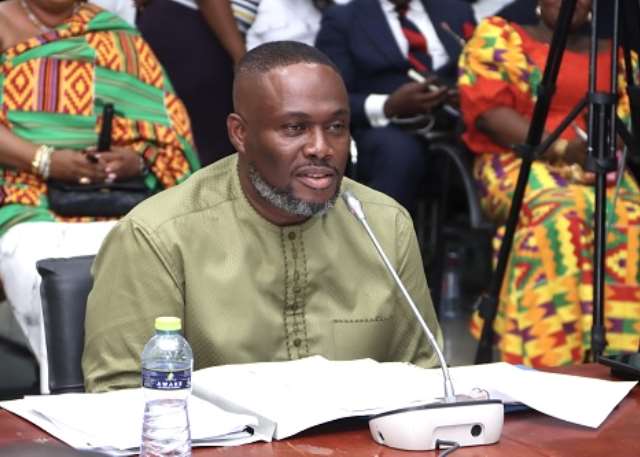Minister for Works, Housing and Water Resources, Hon. Kenneth Gilbert Adjei, has disclosed that the government will require an estimated $6 billion to implement a comprehensive nationwide flood control and mitigation strategy.
Addressing Parliament on Tuesday, the Minister said the recent floods that swept through multiple regions underscore the urgency of decisive and coordinated action.
Delivering a ministerial statement on the “Recent Flooding Incidents Across Ghana and Measures to Mitigate Impact and Prevent Future Occurrence,” Hon. Adjei noted that the 2025 rainy season has already caused widespread devastation in Greater Accra, Ashanti, Western, Northern, and Volta Regions.
Also Read: Muntaka begs Parliament to push for NADMO’s funds as devastating floods grip Ghana again
“These are not mere statistics; they are fellow citizens whose lives and livelihoods have been disrupted. We stand with them in these difficult times and remain committed to supporting their recovery,” he stated.
Hon. Adjei revealed that despite various interventions over the years, flooding remains one of Ghana’s most destructive and persistent hazards, primarily exacerbated by rapid urbanization, encroachment on waterways, poor sanitation, and climate change-induced extreme weather patterns.
He stressed that the National Flood Control Programme (NFCP), introduced in 2009, has seen partnerships between the Ghana Hydrological Authority, NADMO, and local governments. However, he admitted that enforcement and structural challenges have limited its impact.
To respond effectively, the Ministry has outlined a three-tiered approach: Immediate, Medium-Term, and Long-Term measures.
Immediate Measures include: Emergency desilting and drain clearing, Demolition of structures blocking waterways, Public education on flood risk and sanitation, Activation of the Flood Early Warning System (FEWS)
Medium-Term Measures (1–3 years): Expansion and upgrade of drainage systems, Use of real-time IoT flood monitoring tools, Construction of retention ponds and green infrastructure, Strengthened collaboration across agencies
Long-Term Measures (Beyond 3 years): Major overhauls of urban drainage networks, Climate-resilient design codes for urban infrastructure, Creation of a National Hydrological Fund for sustained financing, Integration of AI-based drainage planning tools
The Minister announced government collaboration with the private sector and academia to promote green, nature-based flood solutions, including wetland preservation, rainwater harvesting, and permeable pavement. He also revealed plans to integrate flood awareness into the national school curriculum.
“Public infrastructure must be matched with public discipline. No amount of engineering will succeed without enforcement and civic responsibility,” he emphasised.
Hon. Adjei gave updates on the World Bank-supported Greater Accra Resilient and Integrated Development (GARID) Project, which targets flood mitigation in the Odaw Basin. The project involves expanding drainage, reconstructing bridges, enhancing waste management in low-income areas, and digitising permitting systems.
“GARID is a critical component of our long-term urban flood management strategy and will serve as a model for expansion into other flood-prone regions,” the Minister said.
The Works and Housing Minister urged Parliament and stakeholders to support the ambitious $6 billion national flood resilience programme, to be funded through a mix of public-private partnerships, development aid, and climate financing.
“With the support of Parliament, stakeholders, and the public, we can turn this crisis into an opportunity to build sustainable, inclusive infrastructure and protect our environment,” he declared.


